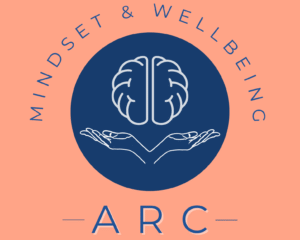
Alison Smith – ARC Mindset and Wellbeing
When your dental team feels valued, supported, and heard, patient care improves, teamwork flourishes, and your practice thrives.
The Heart of Every Dental Practice
As a dental practice owner, you wear many hats – clinician, leader, mentor, and often, the unofficial HR manager. It’s a role that demands not only clinical precision but also emotional intelligence, patience, and the ability to guide a team through daily pressures and personalities.
But here’s the truth: your people are your practice. Every patient experience, every treatment outcome, every word at the front desk – it all flows from the wellbeing, communication, and confidence of your team. When staff feel supported and valued, they don’t just perform better – they care more deeply about your patients and your business.
Think of investing time in people skills as part of your business strategy. It reduces turnover, strengthens teamwork, and protects both your patient experience and your bottom line.
A thriving dental practice doesn’t happen by accident. It’s built intentionally – through genuine care, open communication, and the confidence to handle challenges before they grow.
Here are seven practical strategies to help you do just that.
- Identify the Hazards – What’s Really Going On?
Dental teams face unique pressures: managing patient expectations, high appointment volumes, complex procedures, or dealing with anxious patients. Other challenges might include interpersonal tension between staff, unclear roles, or skill gaps.
Before reacting, take time to identify the root cause of an issue. Sometimes an associate dentist’s frustration isn’t about the DA – it’s about their inadequate training on a new piece of equipment or procedure. Often, the issue isn’t the person – it’s the environment or the circumstances around them.
- Start the Conversation with Care
Conflict or stress often surfaces in subtle ways – late arrivals, short responses, or tension between team members. The key is to approach these situations with curiosity, not confrontation.
Use “I” statements to open dialogue:
“I’ve noticed that you’ve seemed a bit stressed during the morning sessions over the past week, and I just wanted to check in – how are things going for you?”
This invites your staff to share their perspective without feeling judged. Asking open-ended questions encourages honest discussion, rather than a simple “yes” or “no” answer.
- Keep Emotions in Check – Stick to the Facts
Dental practices can be high-pressure environments, and emotions can run high when mistakes happen, or schedules get disrupted.
Focus on observable facts rather than assumptions:
“I noticed three missed patient follow-ups last week – can we explore what challenges were in the way?”
Using generous assumptions helps maintain a fair and constructive tone:
“What’s the most generous assumption I can make about why this happened?”
This approach fosters problem-solving rather than blame.
4. Lead with Empathy
Empathy is critical in dental teams, where stress, fatigue, or patient anxiety can affect performance. Listening carefully and reflecting back helps staff feel understood:
“I can see how managing that patient’s anxiety, while staying on schedule, would be really challenging. I’m sorry you’ve been feeling that pressure.”
Acknowledging your team’s experience opens the door to constructive dialogue and collaboration.
5. Focus on Solutions, Not Just Problems
Once the problem is clear, shift the conversation toward solutions. Ask:
“What could we do differently to make this easier for you or improve patient flow?”
Whether it’s adjusting schedules, providing training, or redistributing responsibilities, working together to create solutions builds trust and accountability.
If you don’t have an immediate answer, be honest – but give a clear timeline:
“Let me think about this and I’ll come back to you by Friday with next steps.”
Timely follow-up shows that the issue is important and valued.
- Close the Loop – and Thank Them
Always thank staff for sharing their concerns, and outline the next steps:
“Thanks for letting me know how you’ve been feeling. Now that we’ve identified the challenges, we can create a plan together to make things smoother and more manageable.”
This reinforces that you’re committed to resolution, not just listening.
- Remember: Everyone Is Human
In a busy dental practice, everyone is juggling patients, procedures, and administrative tasks.
Mistakes and miscommunications will happen.
Approaching conflict with empathy, patience, and fairness transforms tension into trust.
Handling issues constructively keeps your team united, improves patient care, and creates a workplace people enjoy being part of.
Final Thoughts
Conflict isn’t the enemy – silence is. Open conversations, handled with empathy and clarity, turn challenges into opportunities for growth.
Take time this week to check in with a team member, listen without judgment, and explore how you can support them. Those small, human moments – in the operatory, at the front desk, or during staff meetings – can make the biggest difference for your team, your patients, and your practice.
Because a supported, happy dental team isn’t just more productive – they’re the foundation of every successful practice.
ARC Mindset and Wellbeing provides human-centred personal and professional development services scientifically designed to educate and empower people to protect their mental health, achieve their wellbeing goals and live life purposefully.
If you are looking to elevate your practice – whether that be through upskilling your teams’ communication abilities, creating a more productive and harmonious workplace or finessing your leadership skills – email hello@arcmaw.com.au to learn how we can help you.
Mention this article to receive 10% off your first service.